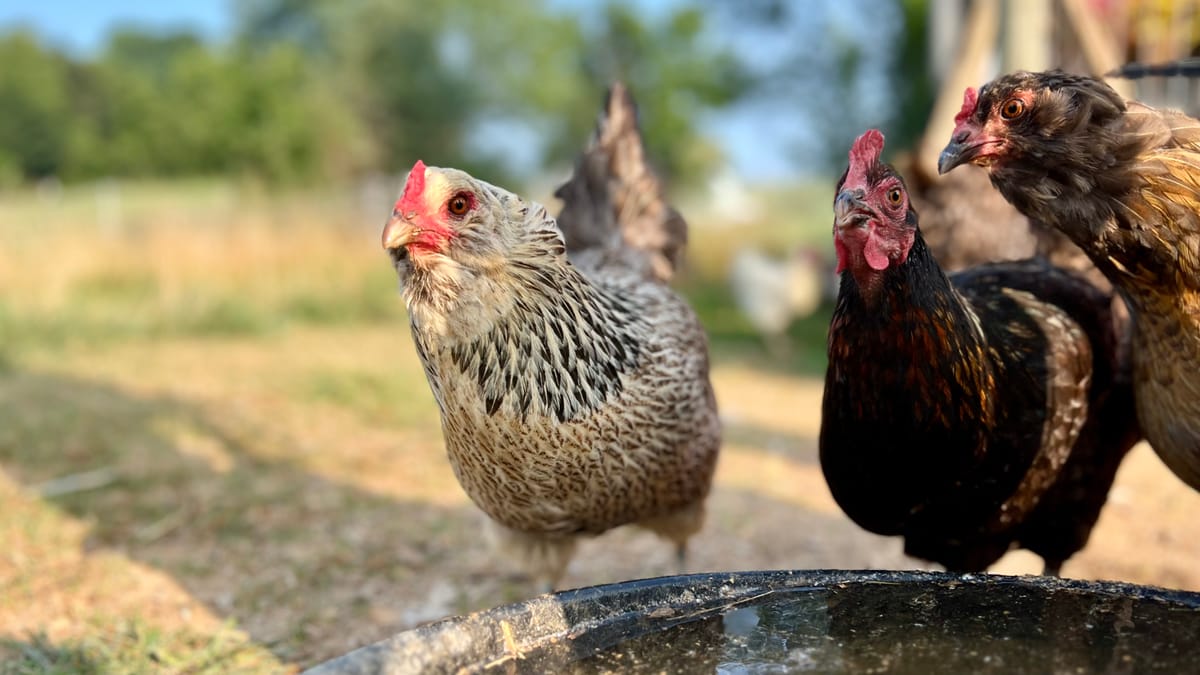Chickens in the Morning
The chickens hadn't changed much in 15 minutes, when you opened your eyes. The initial rush to find bugs had subsided, and now they were just happily pecking around for worms...

You sat down, expecting a quiet meditation. But your pet had other plans. What began with insistent presence and a forgotten coffee on the driveway quickly shifted your session’s trajectory. You welcomed the interruption, acknowledging that perfect meditation isn't about rigidly following a routine for, after all, true practice allows for flexibility and unexpected companions.
You had originally sought a place to meditate that morning, trying to keep the barnyard's frustrations out of mind. The persistent mud and unavoidable projects had turned the yard into a mess. You find yourself contemplating the chickens. You recognized that while essential tasks were managed, other long-term plans were primarily being slowly pecked at. This may be all you can do. You then invited your listeners to join you, emphasizing that the practice wasn't about rigid adherence or deep thought, but simply "making the time and doing the practice.
Watching chickens for half an hour is a good use of your morning, in theory.
After the meditation, you reflect on the miraculous malleability of time. You know how five minutes can feel like an eternity at the dentist or how a minute of whatever meme song can stretch indefinitely when your kid is playing it for the 400th time. You realize that sometimes the most important things in a moment are quickly forgotten, while seemingly unimportant little things can unexpectedly blow up. The constant challenge is having the wisdom to balance how we use that time.
The chickens hadn't changed much in 15 minutes, when you opened your eyes. The initial rush to find bugs had subsided, and now they were just happily pecking around for worms. Not much had really changed. And if you stretch beyond 5 minutes versus 20 minutes, reflecting on what's changed in recent decades and centuries, it can be both heartening and frustrating. This historical perspective may offer comfort when you feel stressed about the world’s tensions.
You might find that some things you stress over for an hour, you should actually talk about for five minutes and then simply let go. Or perhaps you may find a profound value to silence, one that's often forgotten in the collective clamor.
The paradox, of course, is that if you value silence, how do you make yourself heard?